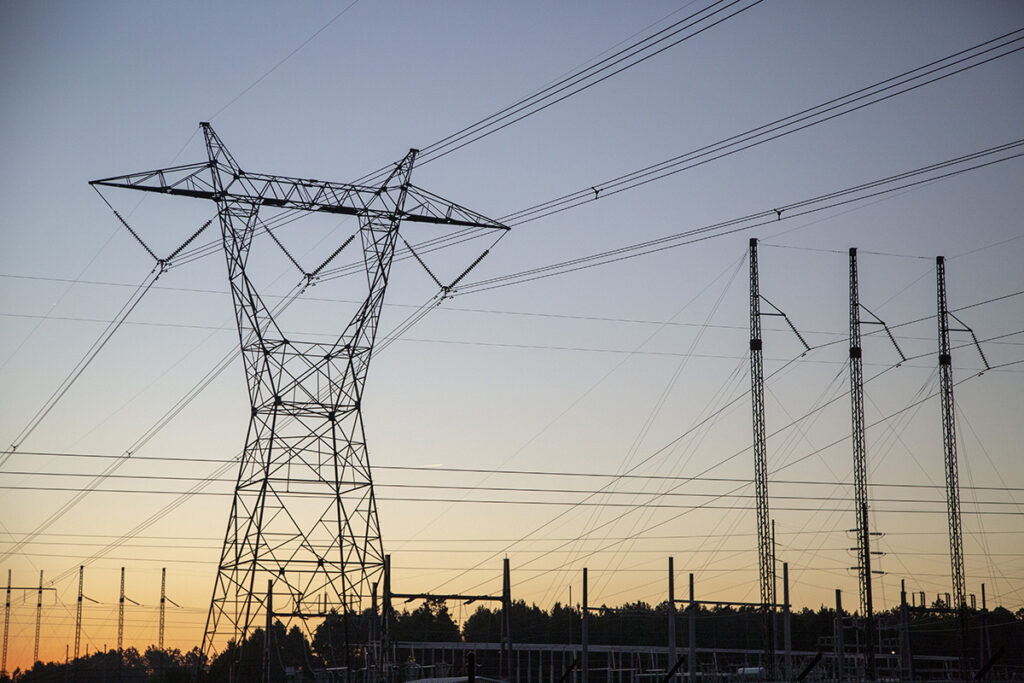
Four large electric grid operators are backing NRECA’s legal argument that the Environmental Protection Agency’s power plant greenhouse gas rule will drive the early closure of crucial generation sources and threaten grid reliability.
The operators voiced their concerns in a “friend of the court” brief supporting a federal lawsuit that NRECA, many states and other parties have filed against the rule. Among other things, the brief claimed that EPA did not adequately consider the grid’s overall “energy requirements” when deciding the best system of emission reduction under the rule.
The grid operators spoke out on the issue after more than a year of sustained outreach from NRECA and co-op leaders.
“The final rule unreasonably discounts that existing fossil power generators will need to decide whether to commit to installing untested technology or retire the generating unit years before the compliance deadline, given the economic cost and risk of compliance,” the Sept. 13 amicus brief states.
Premature retirements of generating units that provide critical reliability attributes “can have significant, negative consequences on reliability,” the grid operators noted.
They asked the court to remand the final rule back to EPA, “with instructions for it to adequately consider the grid adequacy and reliability issues [we] previously raised.”
The brief was filed in the U.S. Court of Appeals for the D.C. Circuit by the Midcontinent Independent System Operator, PJM Interconnection, Southwest Power Pool and the Electric Reliability Council of Texas. Together, they maintain and enhance bulk power grid reliability in all or part of 30 states and the District of Columbia.
Their filing echoes NRECA’s concerns with the power plant rule, which EPA finalized in April. The regulation established greenhouse gas emissions standards for existing coal plants and new natural gas facilities, including requiring a 90% carbon capture rate for coal plants that operate past the start of 2039 and for new and modified baseload gas units.
The 90% carbon capture and storage system that the rule mandates has not been adequately demonstrated and the emissions limits based on it are not achievable, according to NRECA. Furthermore, the rule’s timelines are too tight, and electric co-ops and their members will be saddled with the high cost of either deploying CCS or building extensive new renewable generation to replace lost coal and gas capacity, NRECA has said.
The rule is “based on overly ambitious and inadequately supported assumptions,” the grid operators said. “These assumptions then drive both the rate and timing of compliance, which in turn will drive the premature retirements of generation sources that will threaten the reliability of the electric grid.”
In comments before the rule was finalized, the grid operators had offered several “safety valve” options to mitigate their reliability concerns. But in its final rule, the EPA “did not address these specific recommendations, let alone explain why it did not adopt them,” the brief states.
Failing to address the rule’s consequences, along with those of other EPA power plant regulatory mandates, violates the Clean Air Act’s directive that EPA adequately consider the grid’s energy requirements, they stated.
“The grid operators have confirmed that the negative impacts of the power plant rule on the grid’s reliability that NRECA has warned EPA of are real and could have significant, harmful consequences for our nation,” NRECA Regulatory Affairs Director Dan Bosch said. “We are hopeful that the court will carefully consider the views of these operators that are responsible for ensuring the reliability of the bulk power grid in all or parts of 30 states and Washington, D.C.”
NRECA filed its lawsuit against the EPA power plant rule in May. The association has also asked the U.S. Supreme Court to stay the rule until the case is resolved, saying the regulation poses immediate harm to co-ops and the nation’s electric grid.
In addition, several lawmakers in Congress have sponsored a resolution to overturn the EPA rule.
Molly Christian is a staff writer for NRECA.